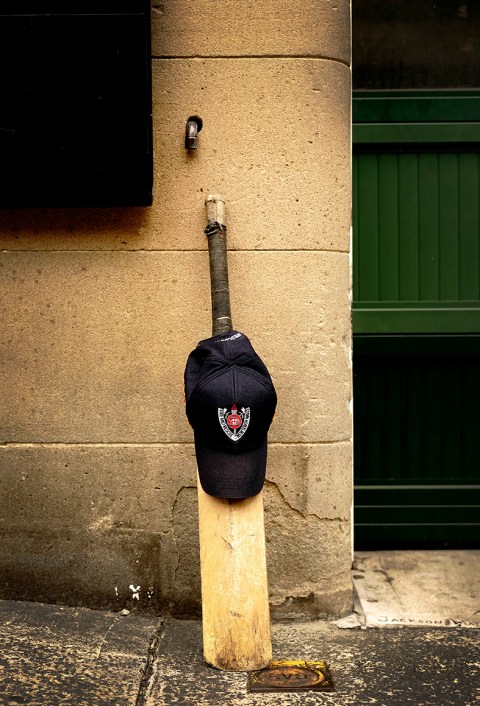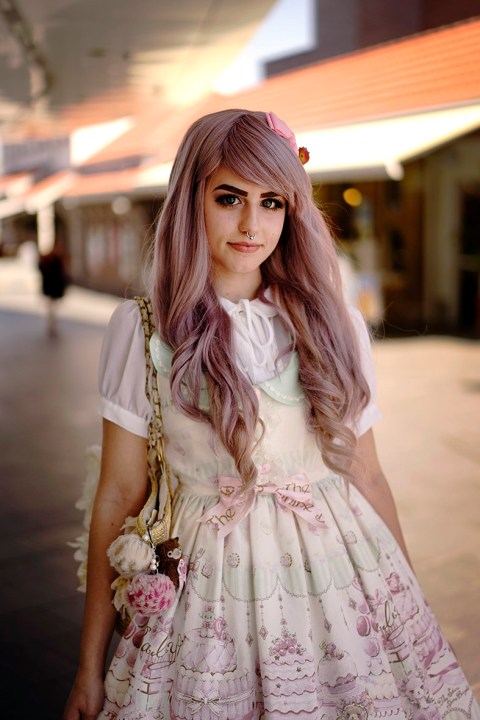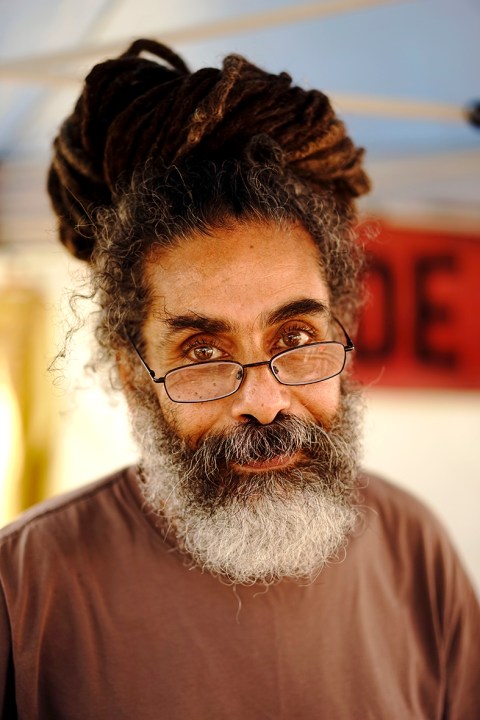Nice touch, Newtown Fireys.

Nice touch, Newtown Fireys.

‘I have not met one person in my course that’s female. I kind of keep mostly to myself and put my head down and do my work. The people are nice but it’s a bit weird just being in a sea of boys. I’m doing a Bachelor of Science in Games Development.
‘There aren’t any female game developers out there that I know of. All my biggest inspirations are male which is pretty upsetting.
‘I’d really like to be able to work for a big company and change the way people make games because you’ve always got your straight white male protagonist, he’s always 30 years old and looks a bit scruffy. There are no cool female lead characters so I’m hoping to change that one day.
‘People making their little smart comments saying good luck getting a job and stuff like that only drives you further to do it. So I just take that and use it as inspiration to turn around one day and be like ha, look what I did!’

‘At the moment, I’m not doing any paid employment. I volunteer 2 days a week at the Ted Noffs Op Shop. I also volunteer for the NSW Consumer Advisory Group for Mental Health. We do systemic advocacy for people with a lived experience of mental illness.
‘Volunteering has really taken over such a big part of my life – not in a bad way – it’s become a full time job for me. I put my whole heart in to it. I really know that I’m doing good work. I know that I’m raising money for troubled youths and families and I know that I’m bettering the quality of life for people with mental illness. It really fills me up with satisfaction.
‘I’m at a crossroads at the moment which is, do I follow my heart and go down the road to mental health advocacy which has almost no job guarantee and no financial gain? Or do I sell out and earn money and live a comfortable life but have no job satisfaction?’

What’s one memory you hope you never forget?
‘My husband.’

‘My mum passed away when I was about 19 so I had to look after my brother and sister on my own. They were 12 and 13 at the time. I don’t know how I did it. It’s hard looking after teenagers at any age. I managed for about 4 years and then I couldn’t do it anymore so my sister went to live with my family up in the country and my brother went to my dad.’
What do you miss most about your mum?
‘The fact that I didn’t have to be responsible. I miss her all the time. Every day.’

‘The saddest moment in my life was when I went to Long Bay Jail. I spent 2½ years in there. I robbed a 7-Eleven in Matraville. I was an alcoholic and a drug addict.’
What did it teach you?
‘Gratitude. Loss of freedom. It taught me to be humble. It taught me to respect others – that you can’t take other people’s money or belongings. I’ve turned all that around in my life. I now go down to Mathew Talbot every Tuesday and feed the homeless. I give back; try and make up. I haven’t been back to prison since 1999. I intend not to go back. I’ve got 3 businesses and I went to acting school.
‘It’s hard when you’re in prison because you’re judged by the police first and you’re judged by the judge and jury. Then you’re judged by Corrective Services and then you get out of prison and you’re judged by society.’
What was the hardest thing when you came out of jail?
‘Getting accepted again by society – them not knowing that I’d changed. There are some people in society that want help; that want rehabilitation. I’ve learned my greatest lessons from my biggest mistakes.’

By request, today we feature Roger who ‘works’ behind the counter at Elizabeth’s Bookshop.

Spotted at Newtown Festival.

Spotted at Newtown Festival.

‘The way we found out was breakfast news. That was the first we’d heard about it. An hour later we had a knock on the door from the WestConnex people with an information pack which was all about the compulsory acquisition. This is my life and I deserve to find out in a slightly more humane way than on breakfast news.
‘I was completely lost for words. It was just absolute shell shock. We were completely blown away. We’ve known the WestConnex was under discussion but we didn’t have any real idea of what that meant for this local area.
‘How do you explain it to your kids? This is home to them. To have to explain that night to a 7 year old and a 4 year old, we are going to have to move. I can’t tell you when. I can’t tell you where.
‘These are people’s homes. This is our lives. This is our community that we’re very invested in.
‘When we bought our home, we knew there was a compulsory purchase order on the house since 1951 and on houses down to Parramatta Road I think. This was the last piece of road that didn’t have those purchase orders taken off. When I spoke to people we were told the only reason that the reservation was still in place here was because the residents haven’t got together to petition to have it removed.
‘We live in a city where you put more roads in place, you get more cars. Where are all these cars going to go? Fundamentally we need public transport and I would think everybody in this area would probably agree.
‘It affects me directly yes, but it affects people who live 6 houses away from me. It affects people who live 6-10 roads away in Newtown and it will continue to flow. It’s not just about me and my house being purchased. It’s about everybody in the community standing up and saying this is not what we want and it’s not what’s best for the Inner West. Public transport, not roads.’